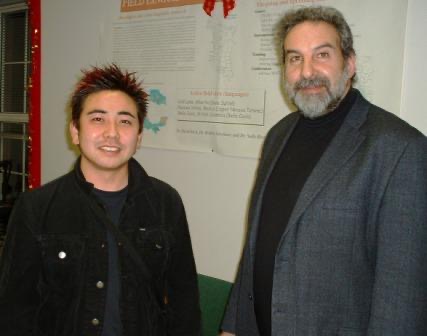Professor Gary Libben (Brock University) passed away on April 30, 2025. It is important for me to share my memories of him because he was my first academic supervisor at the University of Alberta (Canada) and was, and still is, an important part of my life. He taught me so many things, and his greatness cannot be fully described using the simple vocabulary I possess. However, I would like to note two things here: he always asked big questions, and he never became angry at others.
He taught me the importance of asking big questions. When I joined his lab, the Center for Comparative Psycholinguistics at the University of Alberta in 2006 as an undergraduate honors student, I did not understand why Gary and his students were all studying the processing of compound words. However, it did not take long for me to appreciate the motivation behind compound processing research. As demonstrated in his book chapter “Why study compound processing? An overview of the issues" (Libben, 2007, OUP), he taught us the rationale for compound processing research and frequently presented big questions to us. I remember one day, during a weekly lab meeting, Gary asked, “What do you think is the most important discipline?” The lab members answered in turn (I recall students saying things like “computer science,” “linguistics,” and so on). When it was my turn, I had no answer (I was sure that it was not linguistics). Finally, Gary shared his opinion. He said “I think it is philosophy.” Having been in academia for nearly 20 years now, I agree with him.
Through his great kindness, he also taught me the importance of conducting research with honesty. I was educated in Japan until I was 18. At that time, the school environment was quite harsh. When students made mistakes, we were often punished, sometimes physically. I was no exception. I experienced corporal punishment many times and, as a result, decided to act passively not to make short-tempered teachers angry. It was natural for me to decided not to continue studying in Japan; I chose to study in Canada instead. About eight years later, I was working as Gary’s research assistant at the University of Alberta. He asked me to collect data. One day, I finished collecting data but then realized I had made a critical mistake. At first, I thought about just hiding my mistake and handing in the data to Gary without saying anything because I was afraid of how my supervisor would react. Yet, after giving it some thought all night long, I decided to confess my mistake to Gary. His response really surprised me. He said, “Koji, thank you for reporting this honestly. We can collect the data again.” He was the first teacher who did not get angry at all when I made a mistake. Interestingly, fourteen years later, one of my students confessed that he had made a mistake while collecting data. I knew exactly what to say: "Thank you for reporting your mistake honestly." Gary taught me not to hide our mistakes and always do research with honesty.
He demonstrated positive examples of how to approach both science and people. Thanks to him, my life took a positive turn. Whenever I face a problem, I imagine several people I respect and simulate how they might handle the situation. Gary is always one of these “experts” I imagine. Gary, thank you very much for being a good example both as a researcher and as a human being.

Prof. Gary Libben (right) and me (left) in 2008